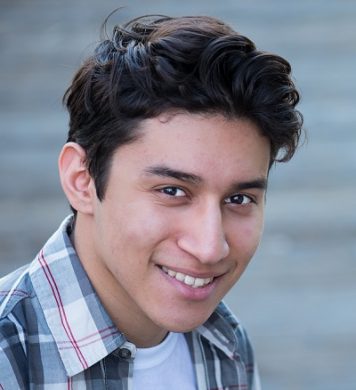“The only regret I have is not taking [AP] earlier in high school.”
By the spring of his junior year of high school, Bruno knew that he was interested in pursuing an advanced degree and a career in math or science. He was confident in his ability to overcome obstacles to reach these goals, but he lacked information about upper level course options.

I came from Mexico three years ago, so I didn’t know anything about AP classes. Many times our parents are working all the time…they don’t really push us to take those classes. We’re on our own.
Once he found out about AP classes, Bruno thought they might be a good option for him since his current coursework was too easy and he wanted a challenge. However, he didn’t feel encouraged by his teachers, despite having conventional markers of AP readiness, including a 4.0 GPA.
Fortunately, that year, his high school had begun a partnership with Equal Opportunity Schools. Staff had the opportunity to explore their school demographic data and participation rates in their AP program, as well as to recommend students for AP. Students were asked to complete a survey which gathered data about their education goals and aspirations, their learning mindsets, and the barriers they faced to participating in AP.
Through this process, four of Bruno’s teachers recommend him for AP. After meeting with his counselor, he signed up for AP Physics, AP Calculus, IB Music, AP Macroeconomics, and AP American Government for the next fall. “Many times as a student, you just need a little bit of motivation from someone,” Bruno said.
Bruno loved the rigorous coursework. He appreciated the AP teaching style, finding it more interactive and “outside of the box.” His AP courses helped him develop skills that were useful in his everyday life—such as time management, study skills, and “all of that good stuff that we’re going to need in college and in life.”
Teachers in AP classes don’t want you to fail. My AP Econ and Gov teacher makes study sessions all the time before we’re going to take a unit test. My AP Calculus and AP Physics teacher…whenever you have a question you can just go up to him and he’ll sit down at lunch and explain to you.
Bruno adjusted quickly to the new level of rigor and, at the end of his first semester, he had nearly a 4.0 GPA. Reflecting on his AP experience after graduating, he said, “the only regret I have is not taking [AP] earlier in high school.”
To expand access to AP/IB to students of color, he simply says: “tell them that those classes are there for them.” His high school is taking this responsibility seriously. A team of dedicated staff are working to implement the Equal Opportunity Schools methodology to continuously improve their informational messaging and encouragement around AP.
The high school staff and students’ efforts are yielding results: from 2015-16 to 2016-17, the AP/IB participation rate of students of color and low-income students increased by 20 percent. The school continues to build on this work to ensure that other students like Bruno get the opportunity to take AP.